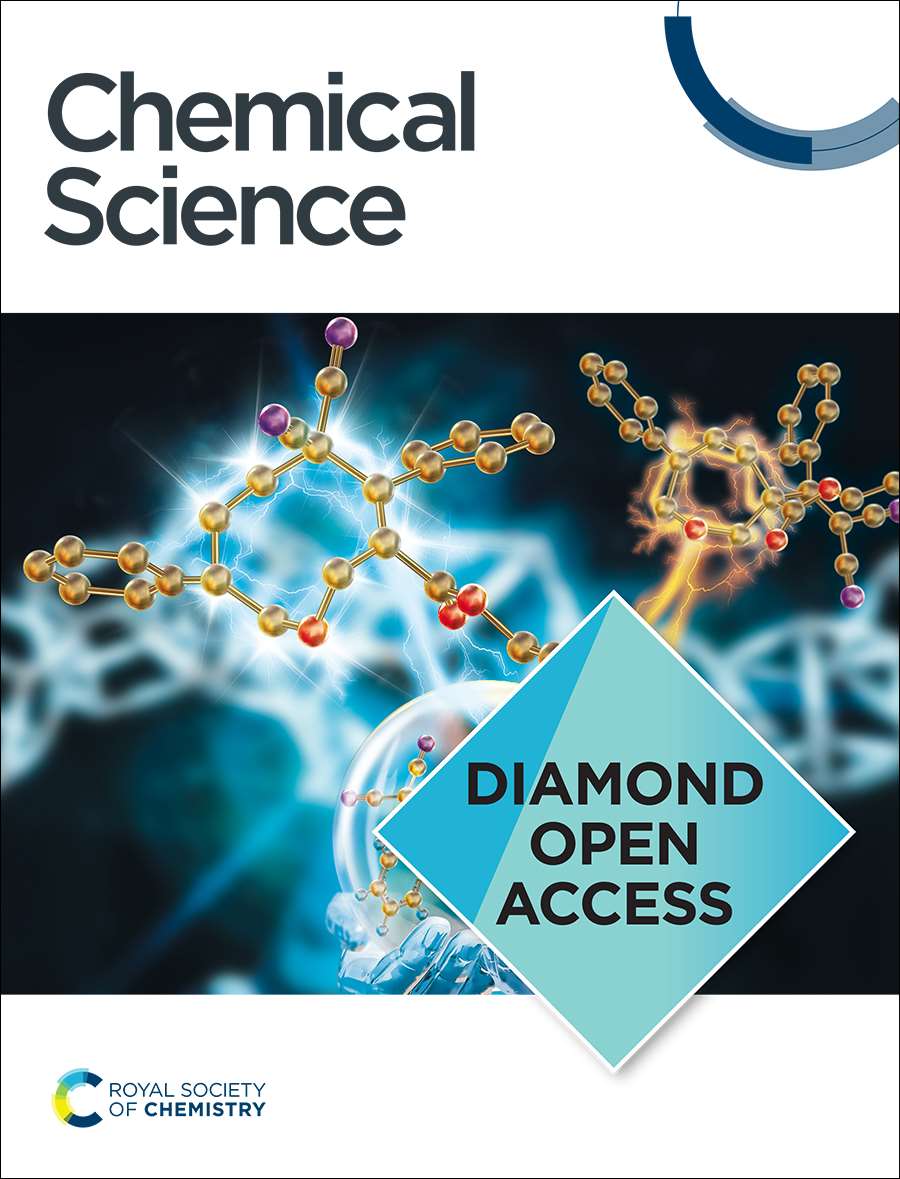Low Temperature Thermal RAFT Depolymerization: The Effect of Z-group Substituents on Molecular Weight Control and Yield
IF 7.6
1区 化学
Q1 CHEMISTRY, MULTIDISCIPLINARY
引用次数: 0
Abstract
The labile end-groups inherent to many controlled radical polymerization methodologies, including atom transfer radical polymerization (ATRP) and reversible addition-fragmentation chain-transfer (RAFT) polymerization, can trigger the efficient chemical recycling of polymethacrylates yielding high percentages of pristine monomer. Yet, current thermal solution ATRP and RAFT depolymerization strategies require relatively high temperatures (i.e. 120-170 °C) to proceed, with slower depolymerization rates, and moderate yields often reported under milder reaction conditions (i.e. lower temperatures). In this work, we seek to promote the low temperature RAFT depolymerization of polymethacrylates via regulating the Z-group substitution of dithiobenzoate. While electron-withdrawing meta and para substituents, including trifluoromethyl (CF3) and trifluoromethoxy (OCF3), compromised the percentage of monomer recovery at 90 °C (e.g. 18% of conversion), instead the incorporation of electron-donating groups in the benzene ring, such as methoxy (OMe) and tertiary butoxy (OtBu), had a remarkable effect leading to up to four times higher conversions (e.g. 75%). Notably, electron-withdrawing Z-groups imposed control over depolymerization, reflected in the gradual decrease of the molecular weight during the reaction, as opposed to electron-donating groups which underwent a more uncontrolled depolymerization pathway. Density Functional Theory (DFT) calculations revealed accelerated bond fragmentation for electron-donating Z-groups, further supporting our findings. Taken altogether, this work highlights the importance of RAFT agent selection to either lower the reaction’s temperature while maintaining high conversions, or induce control over the depolymerization.低温热RAFT解聚:z基取代基对分子量控制和产率的影响
许多可控自由基聚合方法固有的不稳定端基,包括原子转移自由基聚合(ATRP)和可逆加成-破碎链转移(RAFT)聚合,可以触发聚甲基丙烯酸酯的有效化学回收,产生高百分比的原始单体。然而,目前的热溶液ATRP和RAFT解聚策略需要相对较高的温度(即120-170°C)才能进行,解聚速度较慢,通常在较温和的反应条件(即较低的温度)下报告的产率适中。在这项工作中,我们试图通过调节二硫代苯甲酸酯的z -基团取代来促进聚甲基丙烯酸酯的低温RAFT解聚。虽然吸电子的间取代基和对取代基,包括三氟甲基(CF3)和三氟甲氧基(OCF3),在90°C时降低了单体回收率(例如转化率的18%),但苯环中加入给电子基团,例如甲氧基(OMe)和叔丁基(OtBu),具有显著的效果,导致转化率高达四倍(例如75%)。值得注意的是,吸电子的z基团对解聚起到了控制作用,反映在反应过程中分子量逐渐降低,而供电子的z基团则经历了更不受控制的解聚途径。密度泛函理论(DFT)计算表明,供电子z基团的键断裂加速,进一步支持了我们的发现。总而言之,这项工作强调了RAFT试剂选择的重要性,要么降低反应温度,同时保持高转化率,要么诱导对解聚的控制。
本文章由计算机程序翻译,如有差异,请以英文原文为准。
求助全文
约1分钟内获得全文
求助全文
来源期刊

Chemical Science
CHEMISTRY, MULTIDISCIPLINARY-
CiteScore
14.40
自引率
4.80%
发文量
1352
审稿时长
2.1 months
期刊介绍:
Chemical Science is a journal that encompasses various disciplines within the chemical sciences. Its scope includes publishing ground-breaking research with significant implications for its respective field, as well as appealing to a wider audience in related areas. To be considered for publication, articles must showcase innovative and original advances in their field of study and be presented in a manner that is understandable to scientists from diverse backgrounds. However, the journal generally does not publish highly specialized research.
 求助内容:
求助内容: 应助结果提醒方式:
应助结果提醒方式:


